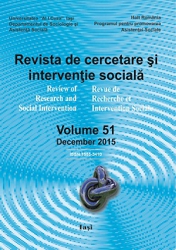DUAL EFFECTS OF MANAGERIAL PRO-SOCIAL RULE BREAKING ON EMPLOYEE BEHAVIOR IN THE CHINESE CONTEXT
DUAL EFFECTS OF MANAGERIAL PRO-SOCIAL RULE BREAKING ON EMPLOYEE BEHAVIOR IN THE CHINESE CONTEXT
Author(s): Xiaoguang Liu, Jizu LiSubject(s): Business Economy / Management, Culture and social structure , Behaviorism, Sociology of Culture, Socio-Economic Research
Published by: Expert Projects Publishing
Keywords: managerial pro-social rule breaking; trust in leadership; institutional trust; behavior intervention; Chinese context;
Summary/Abstract: Currently, the phenomenon that social rule is overshadowed by power and favor exchange still exists in Chinese culture and society. Consequently, the problem of managerial pro-social rule breaking (MPSRB) occurs frequently in enterprise management. However, the consequences of MPSRB are relatively ambiguous and controversial. Using interview data obtained from Beijing, Shanghai, Tianjin, and Xi’an in China, the categories of MPSRB and their influence on employee behavior were explored in this study by integrating universalism and particularism from the perspectives of trust in leadership and institutional trust. Results show that in the Chinese context, MPSRB can be classified as benevolence- based, practicability-based and justice-based, and its influence on employees’ organizational trust (i.e., trust in leadership and institutional trust) is dualistic and opposite, that is, MPSRB improves employees’ trust in leadership while decreasing institutional trust. Through the mediating effect of trust in leadership, MPSRB improves relation-oriented employee behavior. By contrast, MPSRB reduces task-oriented employee behavior through the mediating effect of institutional trust.
Journal: Revista de Cercetare şi Intervenţie Socială
- Issue Year: 2015
- Issue No: 51
- Page Range: 187-201
- Page Count: 16
- Language: English

